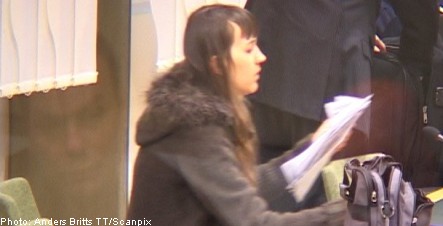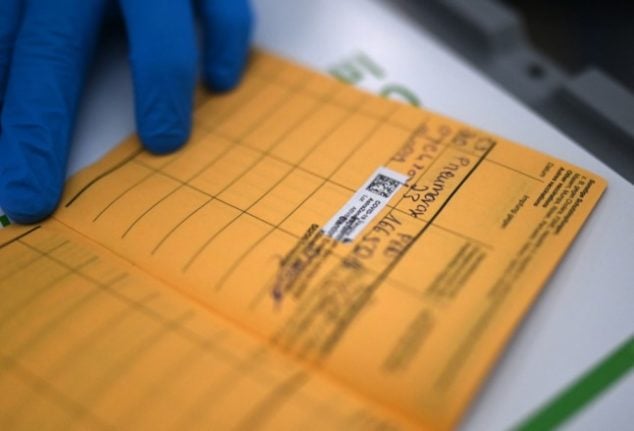Schürrer’s appeal hearing began on December 4th, and earlier in the week the court heard testimony from the children’s mother, Emma Jangestig, who was also hospitalized after the attack.
Facing renewed questioning from prosecutor Johan Fahlander, however, Schürrer refused to comply with his request that she tell the court more about her vacation to Greece in the summer of 2007.
She said that she didn’t want to talk about it but instead wanted to speak freely about her version of events.
Schürrer then began to read entries from her diary in English, which caused the prosecutor to lodge a complaint because the journal entries were not included in the previous investigative material.
The court then decided to make copies of the diary and distribute them to both parties in the case.
The entries included excerpts from an email sent by Schürrer’s ex-boyfriend, Torgny Hellgren, who was living with Jangestig at the time of the attacks.
The email discussed the first meeting between Schürrer and Hellgren, which took place on Crete in August 2006.
In making their case against Schürrer, prosecutors argued that jealously over the fact that Hellgren had chosen to be with Jangestig instead of her drove her to carry out the killings.
In the mail, Hellgren wrote that he missed Schürrer and that things were “empty on the beach and in your bed”.
The reading prompted additional discussion between lawyers and the court, which decided to break proceedings to consider the matter further.
Following the break, the court decided to allow Schürrer to continue reading.
As she continued, Schürrer called into question what she was alleged to have said on several occasions during the investigation, claiming that conclusions about what she said during police questioning were inaccurate.
According to Schürrer, the police had inflated a motive which doesn’t exist.
She also continually refuted claims that she was mentally ill, again reciting notes from her diary.
“Nor have I fantasized about living together with [Torgny],” she said.
Prosecutors busily took notes during Schürrer’s statements while Jangestig, Hellgren, and the slain children’s father sat beside them along with their lawyers.
Jangestig held her son’s favourite doll, Spiderman, in her lap.
Schürrer continued to criticize prosecutors for accusing her of taking a hammer which they believe she then used as the murder weapon.
“Their claims are terrible slander,” she said.
According to Schürrer, the person who committed the murders could have just as well used an axe in the attack against Jangestig and her children.
The 32-year-old German also denied claims that she was wearing athletic shoes when she was visiting Sweden.
Schürrer continued ranting against prosecutors, saying she also felt insulted by their claims that she had been sneaking around Jangestig’s house a few days before the killings.
“Terrible slander,” she said again, adding that she didn’t have a hammer with her when she traveled to Germany.
When she finished speaking, the court then broke for lunch.



 Please whitelist us to continue reading.
Please whitelist us to continue reading.